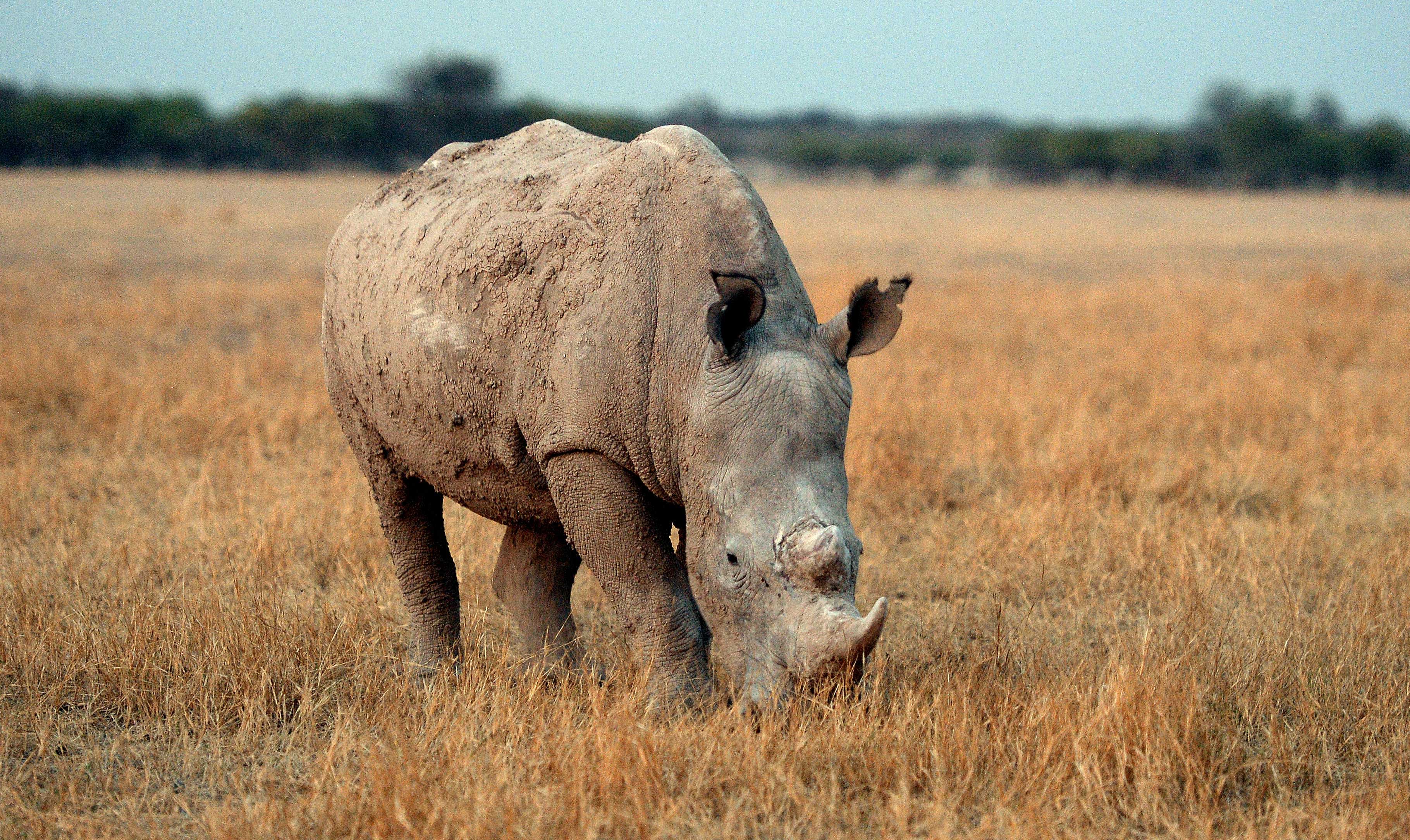- 12 Rhinos await export to Chinese buyers
- Plans to sell wildlife to Angola, DRC and Gambia.
OSCAR NKALA
Zimbabwean Parks and Wildlife Management Authority (PWMA) has captured at least 12 rhinos and delivered them to a special quarantine and treatment facility before export to China.
Sources at the PWMA Southern Regional Headquarters in Bulawayo told The Botswana Gazette that following a secretive capture operation done over the past two weeks, the rhinos are being held at the Mtshibi Camp inside Hwange National Park.
The centre is the southern headquarters of the game capture, treatment and relocation unit. It has processed all the animals exported from Zimbabwe to China in recent years, and presently holds several animals’ species for export to the Democratic Republic of Congo.
“In the past two weeks, 4 females and 1 male were captured from the Matopos National Park. Five more were captured from the Lake Kyle area in Masvingo Province, while two others were extracted from a conservancy in the Midlands Province.
“The Mtshibi Camp is teeming with other species destined for the DRC. The DRC did not buy rhinos, but its order has been used to cover up this hazy rhino export to China. The Convention on Trade in Endangered Species of Fauna and Flora (CITES) has cleared the rhino export,” the source revealed.
Safari operators who spoke to The Botswana Gazette confirmed that capture operations are ongoing, with helicopters last seen tracking rhinos around Matopos National Park on Friday.
They complained that the parks authority never notified tour operators and community stakeholders, despite the huge impact of game capture operations on them.
“The parks authority did not notify anyone affected by this game capture operation. Everyone was shocked to see helicopters hovering in the air. Trophy hunting or photographic safari operations can’t be done in the disruptive environment of active game came capture operations.
Tour operators are stuck with clients who can’t get value for their money because the animal are being hounded by helicopters. They are agitated, threatened and are bound to be aggressive to humans. You can’t operate in such a dangerous environment,” said one operator.
Other operators confirmed the game captures but declined to comment further amid indications that the PWMA has threatened to cancel the operating licences of those opposed to the relocation.
Efforts to get a comment from Zim-Parks spokesperson Tinashe Farawo failed. His mobile and office number were unreachable at the time of going to press. In the past few years, Zimbabwe has been embroiled in controversial live animal exports – including baby elephants, lion and leopard cubs – to China.
In June last year, Environment Minister Oppah Muchinguri-Kashiri said despite the controversies from past sales, Zimbabwe would export more wildlife to China and beyond. He was also quoted by the state-owned Herald newspaper ushering the same sentiments that “The Chinese have enquired about more elephants, baboons, hyenas, lions, among others, and we will sell them more without hesitation. We are not going to apologise to anyone.”
“We don’t sell our wildlife because there is drought. It is government policy that when we receive requests, we sell or donate to friendly countries as a sustainable effort to build the capacities of the communities where these animals are found. Selling wildlife is government priority,” Muchinguri said.
Reports indicate that in 2015, Zimbabwe sold over 100 elephants, out of a population of more than 84,000, to China at a price of about $40,000 (£26,000) each, according to wildlife officials.
The Zimbabwean government also intends to increase live animals exports within the Africa region. It has already received expressions of interest from Angola, the DR Congo and The Gambia.

